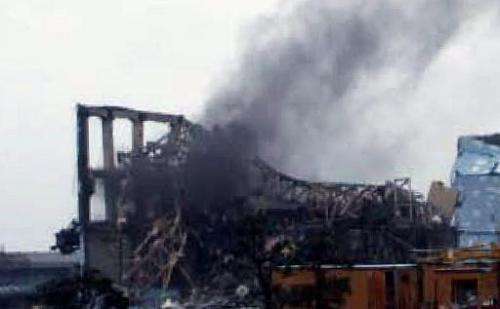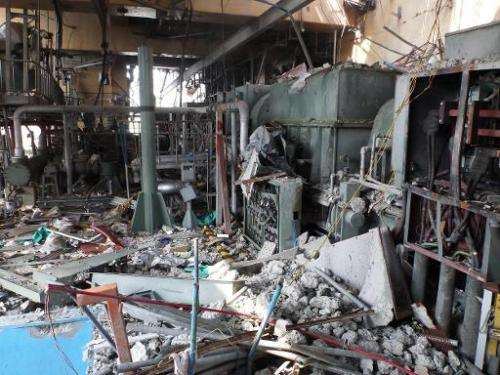Black smoke rises from reactor three at Fukushima Dai-ichi nuclear power plant on March 21, 2011
Japanese prosecutors said Thursday that executives in charge of the Fukushima nuclear plant will not be charged, setting up a possible showdown with a citizens' panel that wants someone brought to book for the disaster.
The move is the latest in a tussle between legal authorities and an angry public over who should take responsibility for the tsunami-sparked reactor meltdowns in 2011 that forced tens of thousands from their homes.
A parliamentary report has said Fukushima was a man-made disaster caused by Japan's culture of "reflexive obedience", but no one has been punished criminally.
A groundswell of opinion holds that the cozy ties between the government, regulators and nuclear operators have insulated executives of plant operator Tokyo Electric Power (TEPCO).
But prosecutors have repeatedly refused to bring charges against them, citing insufficient evidence and the unlikelihood of securing a conviction.
Although the March 11 earthquake and tsunami killed 18,000 people, the nuclear disaster it caused is not officially recorded as having directly killed anyone.
An independent judicial review panel made up of ordinary citizens in July called for criminal charges to be brought against three former executives at Fukushima Daiichi, forcing prosecutors to re-examine the case.
Presenting their findings Thursday, they said TEPCO's managers could not have predicted the size of the huge tsunami triggered by the 9.0 magnitude earthquake, and could not have protected the plant against its effects.
The fourth floor of the reactor four building at the Fukushima Dai-ichi nuclear power plant on June 11, 2011
"We conclude that there is not enough evidence to suggest that Tokyo Electic executives could have predicted or could have avoided (the accident)," said Ryoichi Nakahara, deputy chief prosecutor of the Tokyo District Public Prosecutor's Office.
He said prosecutors had questioned a wider group of experts following the July panel ruling but reached the same conclusion.
Under Japanese law, if the judicial review panel challenges that decision a second time, a group of court-appointed lawyers would then be compelled to press charges.
The three are former chairman Tsunehisa Katsumata, then-vice president Sakae Muto and former vice president Ichiro Takekuro.
Campaigners have called for about three dozen company officials to be held accountable for their failure to take proper measures to protect the site against the tsunami, which sparked the worst atomic crisis in a generation.
© 2015 AFP
























